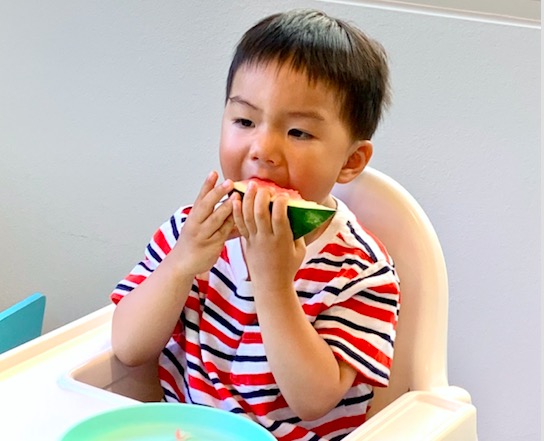
Food Allergy Prevention
Ways to Reduce Risk of Food Allergies in Your Babies and Children
Updated July 27, 2021
Babies and children with eczema have a higher risk of developing food allergies. Although we can’t change our genetics (at least not yet), there are modifiable factors that can help prevent food allergies.
I am a huge proponent of primary and secondary prevention. Primary prevention are ways to prevent your child from having either food sensitization or allergy. Secondary prevention are ways to prevent your child from having food allergies (clinical symptoms) even when they are already sensitized (sensitivity = positive labs or skin test). Once your child has food allergies, we can offer oral immunotherapy as a way to desensitize them, but it is not a perfect treatment, and it is much preferable to prevent food allergies before they develop.
Factors that may help prevent food allergies:
- Food Diversity and Early Introduction
- Introduce as many different types of foods to your babies and children when they are ready. Usually babies start becoming interested in solid foods around 4-6 months.
- Focus on these top allergenic foods: dairy, soy, wheat, egg, peanut, treenuts, fish, shellfish, and sesame. Data is strongest for peanut and egg.
- We have found out that the longer you wait on food introduction the more likely your child will develop food allergies.
- Environmental Exposure
- Try to expose your babies and children to outside environment (“Hygiene hypothesis”).
- Having siblings and dogs help reduce risk of food allergies.
- Vitamin D Optimization
- Vitamin D insufficiency is a risk factor for food allergies (Australian study).
- Replacing Vitamin D levels is important.
- Good Skincare to Minimize Rashes
- There are some preliminary studies on this. Very recent study in Japan (JACIP 2020) showed proactive topical treatment including topical steroids on eczema skin to help control the rash lowered risk of food allergies. More studies are currently undergoing.
- Current leading theory for food allergies is Dual Exposure Hypothesis: exposure of food antigens through gut helps achieve food tolerance as opposed to exposure of food antigens through eczema skin, which cause food allergy. However, this is not a perfect hypothesis as children who don’t have eczema can still have food allergies.
- In general, try to protect your babies and children’s eczematous skin with good emollients and please see your pediatric allergist or dermatologist if emollients are not enough to control the rashes. See our skincare regimen for eczema!

If you find this blog post useful, follow our instagram for updates!
All health related content is for educational purposes only and is not a substitute for seeking medical care. Please see your doctor for actual diagnosis and medical care. The information on the website has not been evaluated by the Food & Drug Administration, and is not intended to diagnose, treat, cure, or prevent any disease. Individual results may vary.